Are energy drinks harmful to children? Response of each company and ingredients are explained.
You may have heard about news reports overseas of children dying from excessive energy drink consumption, but it has been concluded that the direct cause-and-effect relationship between consuming only Monster Energy or Red Bull and death has not been established.
However, energy drinks often contain caffeine equivalent to 1-2 cups of coffee, and since caffeine intake is not recommended for children, energy drink manufacturers also do not recommend their products for children. Some energy drinks clearly display a recommendation against consumption for those under 18.
Let's take a closer look at how energy drink manufacturers in Japan and overseas respond to this issue and the potential dangers of caffeine in energy drinks for children.
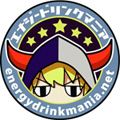 Author: Energy Drink-kun
Author: Energy Drink-kun
In 2001, while living in the United States, I encountered energy drinks through the dance scene and was deeply impressed. After returning to Japan, I found that energy drinks were considered novelty beverages, so I established a comprehensive website in 2013 to share the true appeal of energy drinks. As an energy drink enthusiast, I began drinking them seriously again, collecting over 7,000 varieties of energy drinks from various countries. I am also active as a critic and expert, receiving media interviews.
Energy Drink Ingredients That Affect Children
If there is any harmful effect on children, caffeine contained in energy drinks is considered to be the most dangerous.
For more details on how many cans of Monster Energy or Red Bull would result in a lethal dose, please refer to the separate page.
Caffeine Amount That Can Cause Acute Caffeine Poisoning in a Child Weighing About 35kg (Standard Weight for a 10-Year-Old)
In simple terms, it is said that if a child consumes 6.5mg of caffeine per 1kg of body weight within 3 hours, almost half of people will experience symptoms of acute caffeine poisoning.
For example, for a child weighing 35kg, which is considered the standard weight for a 10-year-old, consuming 227.5mg of caffeine could cause symptoms of acute caffeine poisoning, such as palpitations and anxiety, in half of those who ingest it.
However, since children’s body size and internal organ development are not comparable to adults, the caffeine amount based on body weight may not be entirely accurate. Therefore, it should be considered dangerous to allow a child to consume an energy drink that contains 160mg of caffeine in one can, which is even lower than the amount calculated above.
Acute Caffeine Poisoning Won't Immediately Result in Death
However, it’s important to note that just experiencing symptoms of acute caffeine poisoning doesn’t mean a person will die right away.
Typically, the lethal dose of caffeine is between 5 to 10 grams.
As mentioned earlier, children’s bodies are different from adults, so it’s necessary to consider a much lower amount than the lethal dose of 5 to 10 grams. To ingest 1 gram of caffeine (1/5 of the lethal dose), a child would need to consume 12.5 cans of Red Bull (250ml, with 80mg of caffeine per can), or 3.125L of it.
Energy Drink Manufacturers Recommend Against Consumption for Children
In not only the U.S. but also Japan and many other countries, energy drinks are labeled with the warning that they are not recommended for children due to caffeine content.
VPX Bang Energy Drink Label
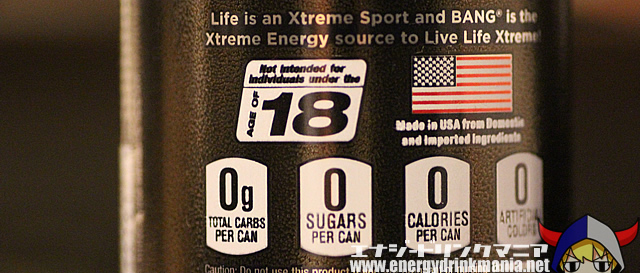
The American energy drink, VPX Bang Energy, contains over 300mg of caffeine and clearly states that it is not recommended for those under 18, in large text.
Similarly, the Spike Energy Drink, which contains extremely high caffeine levels, also has a red warning stating, “Be cautious if under 18 or lightweight.”
NOS Has 18+ Label on Some Cans

NOS Energy Drink, when it was sold by Coca-Cola in the past, had a label on the back of the can indicating it was not recommended for those under 18, as it contains 160mg of caffeine per can. It also warned to be cautious of exceeding the daily caffeine intake limit of 400mg.
There’s even a headline that read, "NOS sent teenagers to the hospital," which I find quite humorous... (;´∀`)
Older Monster Energy Label Was Different

Older Monster Energy cans had a label that recommended no more than 3 cans a day, which would amount to 480mg of caffeine. For adults, this amount isn’t a major concern, but consuming 3 cans (about 1.5L) within 3 hours could lead to acute caffeine poisoning symptoms. Clearly, this is not a safe limit for children.

The current Monster Energy cans now display the same kind of label as other energy drinks, stating “Not recommended for children or pregnant women.”
Children and Energy Drinks in the U.S.
In the U.S., many parents are sensitive about their children's caffeine intake. Even adults tend to monitor their caffeine consumption from coffee, tea, and other drinks to avoid overconsumption. Therefore, news about children dying from energy drink consumption, even if not true, can come across as sensational.
The American Academy of Pediatrics recommends that children and teens limit their caffeine intake to no more than 100mg per day. This amount is not considered dangerous, but rather to prevent chronic caffeine addiction. For example, consuming one 250ml can of Red Bull per day stays within this range. However, if a child is also consuming caffeine from other beverages like soda, caution should be exercised.
Some European Countries Ban Energy Drink Sales to Children
In Europe, the consumption of energy drinks by children has been debated for years and is considered a potential danger.
In 2014, Lithuania banned the sale of energy drinks to those under 18.
Moreover, in the UK, which has a wide variety of energy drinks, new laws regulating the sale of energy drinks to teenagers were passed in 2018, causing quite a stir.
Not Just Energy Drinks—Other Caffeinated Beverages and Pills Are Also Dangerous
Up until now, I’ve discussed how the caffeine in energy drinks can be dangerous for children, but caffeine is also present in coffee and other drinks, so it’s a mistake to single out energy drinks as being particularly dangerous.
Children are unlikely to drink a lot of bitter coffee, but energy drinks, which are sweet and easy to drink, could lead to overconsumption. The real concern, however, is the caffeine itself.
Related for Are energy drinks harmful to children? Response of each company and ingredients are explained.
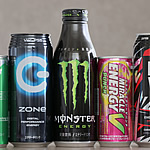 Nutritional Information of Energy Drinks(Japan)
Nutritional Information of Energy Drinks(Japan)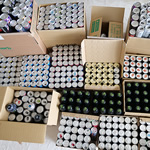 What Happens If You Drink Energy Drinks Every Day!? A Fan Who Has Been Drinking Them Since 2013 Writes About It
What Happens If You Drink Energy Drinks Every Day!? A Fan Who Has Been Drinking Them Since 2013 Writes About It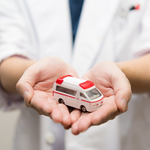 Possibility of Cardiac Arrest from 75 Red Bulls and 42 Monsters: Caffeine Poisoning Leading to Emergency Transport and Deaths in Japan
Possibility of Cardiac Arrest from 75 Red Bulls and 42 Monsters: Caffeine Poisoning Leading to Emergency Transport and Deaths in Japan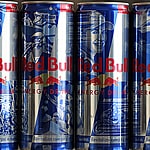 24oz Red Bull 24 cans consumed leading to death news
24oz Red Bull 24 cans consumed leading to death news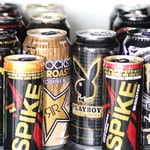 First case in Japan: A man in his 20s from Kyushu died from energy drinks and caffeine pills
First case in Japan: A man in his 20s from Kyushu died from energy drinks and caffeine pills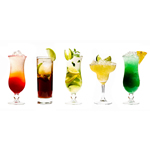
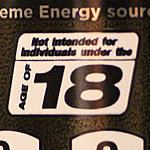 Are energy drinks harmful to children? Response of each company and ingredients are explained.
Are energy drinks harmful to children? Response of each company and ingredients are explained.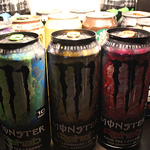 Energy drinks are ineffective! A thorough explanation from a serious energy drink mania
Energy drinks are ineffective! A thorough explanation from a serious energy drink mania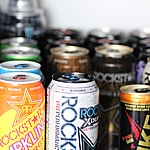 The dangers of drinking too many energy drinks
The dangers of drinking too many energy drinks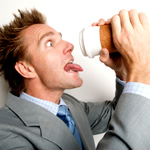 Energy Drink Caffeine Overdose: How Much Is Too Much?
Energy Drink Caffeine Overdose: How Much Is Too Much?


 Since 2001, Energy Drink Maniac has been drinking energy drinks and providing the most detailed reviews of global energy drinks based on firsthand research.
Since 2001, Energy Drink Maniac has been drinking energy drinks and providing the most detailed reviews of global energy drinks based on firsthand research.